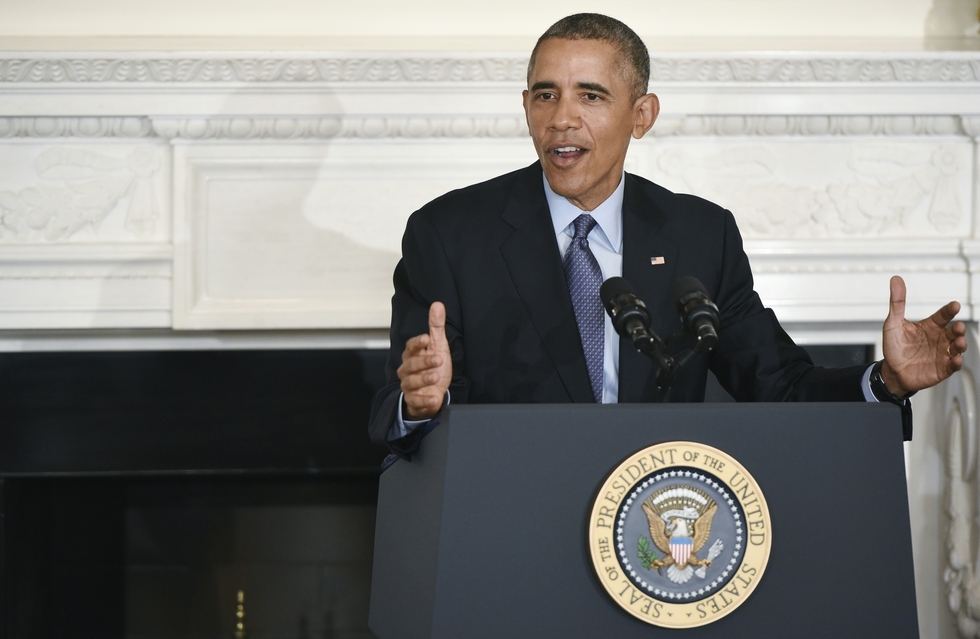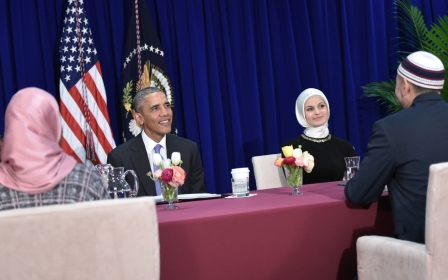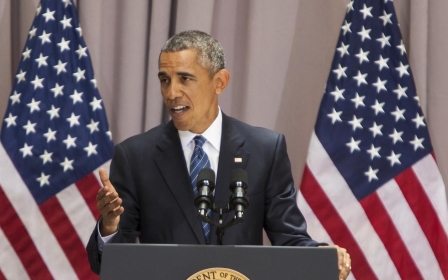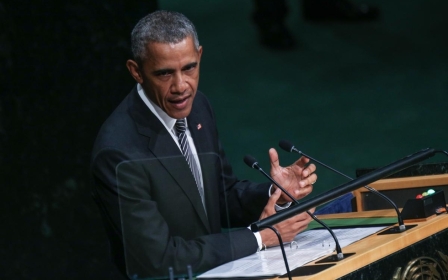Obama sets out plans to shut down Guantanamo Bay

US President Barack Obama said on Tuesday that Guantanamo Bay was "inconsistent with US values" as he set out plans to close down the controversial island prison synonymous with the so-called "war on terror".
"In our fight against terrorists like al-Qaeda and IS, we are using every element of our national power," he said. "Our military, intelligence, diplomacy, homeland security, law enforcement - federal, state and local - as well as the example of our ideals as a country that's committed to universal values, including human law and human rights.
"For many years it's been clear that the detention facility at Guantanamo Bay does not advance our national security. It undermines it. This is not just my opinion - this is the opinion of experts, this is the opinion of many in our military."
He outlined a $290-$475 million plan to move the 91 remaining detainees abroad and to facilities in the United States.
Obama, who had pledged to close Guantanamo Bay during his successful election campaign in 2008, said he had been frustrated by repeated blocks imposed by the Republican-controlled Congress.
“The public was scared into thinking that ‘Well if we close somehow we’ll be less safe’ and since that time Congress has repeatedly imposed restrictions aimed at preventing us from closing this facility," he said.
“Today, the department is submitting our plan for finally losing the facility at Guantanamo once and for all.”
Senior administration officials earlier said that 13 facilities had been identified in the US where detainees currently incarcerated at the military base in Cuba could be re-located.
Obama said that the prison had been inconsistent with what he believed were US values.
“We can capture terrorists, protect the American people and when done right we can try and put them inside our maximum security prisons and it works just fine," he said, adding that his plan for closure would also save the Defence Department about $80mn.
Lawmakers in the Republican-controlled Congress have blocked closing the facility, banning the transfer of detainees to the United States, and there was little prospect of Republicans changing tack in the run-up to the November presidential election.
House Speaker Paul Ryan immediately rejected the proposal, saying: "President Obama has yet to convince the American people that moving Guantanamo terrorists to our homeland is smart or safe."
"It is against the law, and it will stay against the law, to transfer terrorist detainees to American soil. We will not jeopardize our national security over a campaign promise."
Obama appealed for the closure plan to be given "a fair hearing, even in an election year."
But Republican Senator and presidential candidate Marco Rubio doubled down in opposing it, promising to increase the Guantanamo population if elected.
"Not only are we not going to close Guantanamo - when I am president, if we capture a terrorist alive... they are going to Guantanamo and we are going to find out everything they know," he said.The Pentagon last year sent a team of experts to review US sites that could house those detainees following the closure of the prison.
Guantanamo Bay prison was opened by then-president George W Bush in the wake of the September 11, 2001 attacks and the US-led invasion of Afghanistan.
Inmates were called "enemy combatants" and denied standard US legal rights, meaning many were held for years without charge or trial.
The Pentagon last year sent a team of experts to review US sites that could house those detainees following the closure of the prison.
Locations considered then included the Consolidated Naval Brig in Charleston, South Carolina; Fort Leavenworth in Kansas; and a federal prison complex in Colorado that is already home to Egypt's Ramzi Yousef, who bombed the World Trade Center in 1993, and "Unabomber" serial murderer Ted Kaczynski.
Moazzam Begg, a former Guantanamo prisoner and director of the anti-detention campaign group CAGE, said that he was sceptical about the success of Obama's plan.
"It's hard to fault anything that he said in terms of the plan to close Guantanamo, but of course we've heard it from him a couple of times over the first seven years of his presidency," he told Middle East Eye, adding that he expected the proposal to be blocked by Congress again.
"The proof's really going to be in the pudding - I'll believe in Guantanamo's closure when I see it."
He also criticised the proposed plans to transfer the prison to the US mainland.
"You've got 35 prisoners who've been cleared for release, even they haven't been resettled or sent back home," he said. "As far as the others - we're told they're too dangerous to release and not enough evidence to charge. So what are they going to do with them? If they take them on to the US mainland, they will have to release them because the evidence that they've produced against them will all be based on torture.
"So Guantanamo will either transfer to America which will be impossible because of habeas corpus rules, or it will remain open."
New MEE newsletter: Jerusalem Dispatch
Sign up to get the latest insights and analysis on Israel-Palestine, alongside Turkey Unpacked and other MEE newsletters
Middle East Eye delivers independent and unrivalled coverage and analysis of the Middle East, North Africa and beyond. To learn more about republishing this content and the associated fees, please fill out this form. More about MEE can be found here.




